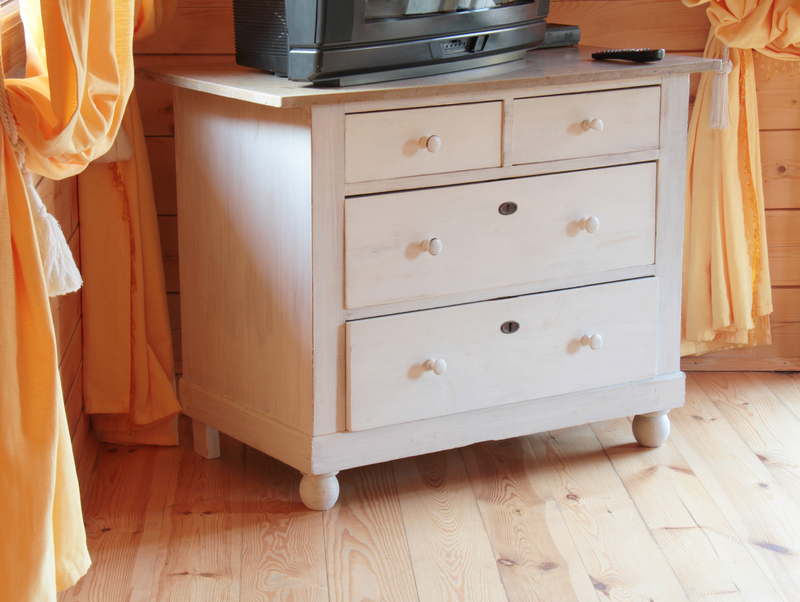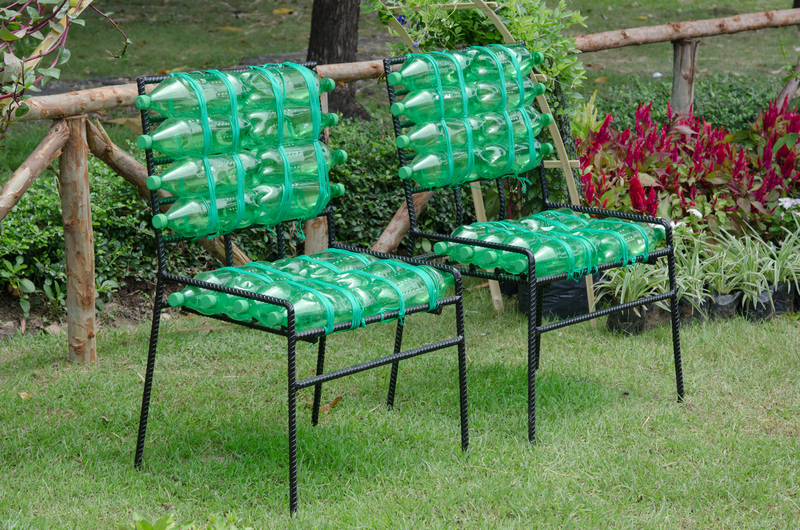The Smart Way to Handle Waste: Rubbish Removal Bags Vs the Traditional Skip
Effective waste management is crucial for a cleaner environment, safer homes, and a more sustainable future. As both residential and commercial projects generate different types and quantities of rubbish, choosing the right waste removal method is more important than ever. Over the past decade, rubbish removal bags have rapidly emerged as a popular alternative to the traditional skip. But which option is best suited for your next clean-out or renovation? In this comprehensive guide, we'll examine the pros and cons of both solutions, helping you make the smartest decision for your needs in 2024 and beyond.
Table of Contents
- Understanding Waste Removal: Why It Matters
- What are Rubbish Removal Bags?
- What is the Traditional Skip?
- Key Differences: Rubbish Bags vs Traditional Skips
- Comparing Cost Efficiency
- Flexibility and Convenience
- Environmental Impact
- Space & Placement: Urban vs Suburban
- Choosing the Smart Solution: What's Best for You?
- Top Tips for Effective Rubbish Removal
- Conclusion: Smart Waste Management for Your Project
Understanding Waste Removal: Why It Matters
Whether you are renovating your home, clearing out the garden, or managing a construction site, responsible waste management is vital. Not only does proper disposal keep spaces tidy and safe, but it also minimizes landfill, conserves resources, and helps prevent environmental pollution.
- Health & Safety: Stacked or loose rubbish can pose tripping hazards and attract pests.
- Legal Compliance: Councils require the correct disposal of different waste types, with heavy penalties for non-compliance.
- Sustainability: Efficient rubbish removal enables more recycling and less landfill waste.
The right rubbish removal solution streamlines your process, saves you money, and helps create a greener world.
What Are Rubbish Removal Bags?
Rubbish removal bags, also known as skip bags or waste removal sacks, are strong, multi-layered bags designed for collecting all sorts of household, garden, or light construction waste. These heavy-duty bags are typically made from woven polypropylene, making them both lightweight and surprisingly robust.
Main Features of Rubbish Removal Bags
- Versatile Capacities: Available in various sizes, from one cubic metre to several cubic metres.
- Easy Setup: Bags are delivered flat-packed and simply unfolded where needed.
- Collection on Demand: Once filled, a collection service can be scheduled to pick them up.
- Space-Efficient: Useful for tight spaces and small properties where skips can't fit.
- Lower Visual Impact: Often less of an eyesore than bulky metal skips.
With their portability and ease of use, rubbish removal bags offer an innovative, cost-effective solution for modern waste management needs.
What is the Traditional Skip?
Traditional skips are large, open-topped metal containers, delivered by lorry to your site and left for a fixed rental period. They have been the mainstay of bulky waste disposal for decades, especially for building, demolition, or large-scale garden projects.
Main Features of Skips
- High Capacity: Skips range from mini (2-3 cubic yards) to builders' skips (8 cubic yards) and even larger industrial containers.
- Durable: Made from heavy-duty metal, suitable for heavy and dense waste such as soil, rubble, or bricks.
- Long-Term Hire: Typically hired for several days or weeks, ideal for ongoing projects.
- Needs Street Permits: If placed on public land, a council permit is usually required.
While tried and tested, skips may not always offer the most flexible, cost-effective, or eco-friendly waste removal--especially for smaller projects or limited spaces.
Key Differences: Rubbish Removal Bags vs Traditional Skips
Choosing between a skip bag and a traditional skip isn't always straightforward. Each method brings its own advantages and limitations. Let's break it down:
| Feature | Rubbish Removal Bags | Traditional Skips |
|---|---|---|
| Capacity Range | 1 - 4 cubic metres (suitable for most household jobs) | 2 - 16+ cubic yards (ideal for bigger, bulky materials) |
| Placement | Almost anywhere on your property - garden, driveway, garage | Needs level ground, vehicle access; can block driveways |
| Permit Requirement | No permits needed on private property | Permit often needed when on public/communal land |
| Cost | Generally cheaper for small/medium loads | Better value for heavy, bulky, or dense loads |
| Flexibility | Fill at own pace, schedule collection when ready | Fixed hire window, sometimes daily surcharges |
| Environmental Impact | Encourages more sorting & recycling | Often mixed waste; may go directly to landfill |
Comparing Cost Efficiency
One of the major factors when selecting between rubbish removal bags and traditional skips is cost. Here's how they stack up financially:
- Rubbish removal bags are generally more affordable for most light domestic cleanups. You pay for the bag and collection service. There are no hidden rental fees.
- Traditional skips attract higher upfront rental charges, plus possible permit fees if placed on streets. Running over the rental period often incurs additional daily costs.
- For heavy materials (concrete, bricks, soil), skips are more economical due to weight and volume limits on bag collection services.
- Hidden costs: Overfilled skips can result in 'overload' charges, while overloaded bags may be refused collection.
Tip: Always estimate the type, weight, and quantity of rubbish you'll generate before finalizing your waste solution!
Flexibility and Convenience
Why Rubbish Removal Bags Win for Flexibility
- On-demand use: Bag isn't taking up space till you're ready to fill it.
- No tight hire deadlines: Fill the bag at your own pace, then book collection.
- No permit headaches: Place almost anywhere on private land.
- Ideal for Unexpected Rubbish: Need to clear out ASAP? Simply purchase and set up a bag at short notice.
- Great for hidden or awkward spaces--bags can be carried through doors, up elevators, or down side paths.
When Skips are More Convenient
- Large volumes: If you have many tons of stone, dirt, or demolition waste.
- Construction & Renovation: Tradespeople can tip heavy items directly in, using machinery or barrows.
- Fixed timeline: When the project follows a strict schedule and all rubbish is removed at the same time.
Environmental Impact
With environmental sustainability at the forefront of modern life, our approach to rubbish is changing. Let's see how both options affect the planet:
- Rubbish removal bags encourage you to pre-sort recyclables and green waste, helping collection services divert more materials from landfill. Most bag providers partner with recycling centers to optimise resource recovery.
- Skips often contain mixed waste, with little separation, resulting in more mass going direct to landfill.
- Bags made from polypropylene are reusable on carts and have a lower manufacturing footprint than heavy metal skips.
For the eco-conscious homeowner, rubbish bags are often the best waste removal choice. Lesser carbon impact, more recycling opportunities, less clutter.
Space & Placement: Urban vs Suburban Needs
Urban properties are increasingly compact, with minimal driveways, narrow streets, and limited access. Here's how the options compare:
- Skip Bags: Can be placed virtually anywhere--on patios, in car parks, even within garages or basements.
- Skips: Require level vehicular access, space to drop/lift, and must avoid blocking traffic.
- Permitting: Skips on public land (streets, verges) almost always require a paid permit, which can take days to process and may not be available on short notice.
Winner for tight & urban settings: Rubbish removal bags.
Choosing the Smart Solution: What's Best for You?
No single solution fits every project. Here's a quick guide to making the smartest choice:
Rubbish Removal Bags Are Ideal For:
- Home or garden clearouts
- Weekend DIY projects
- Moving house or decluttering
- Apartment or small business renovations
- Sites with tight access or parking
- People looking for a sustainable waste management solution
Traditional Skips Work Best For:
- Major construction/demolition sites
- Large quantities of heavy waste (soil, bricks, concrete)
- Projects with precise start/finish dates
- Sites with ample space and easy vehicle access
Still unsure? Many providers now offer expert waste consultations. Discuss your project in detail with a supplier to get tailored advice.
Top Tips for Effective Rubbish Removal
- Accurately estimate volume: Use online calculators to avoid under- or over-ordering.
- Segregate waste types: Separate recyclables, green waste, and hazardous items before collection.
- Check local rules: Always verify council regulations regarding waste disposal and skip placement.
- Don't Overfill: Both bags and skips have fill line indicators--never exceed them.
- Book in Advance: Secure your skip or rubbish removal bag collection slot, especially during busy periods.
Conclusion: Smart Waste Management for Your Project
Waste does not have to be a headache. In 2024, the smart way to handle rubbish is about matching your needs to the right tool. For most modern homes, offices, and smaller jobs, rubbish removal bags provide unbeatable flexibility, value, and convenience. For major renovations and heavy-duty clearances, the traditional skip is still king. By understanding your project's requirements--and prioritizing efficiency, environment, and cost--you can create a cleaner space and a healthier planet.
Ready to start your next rubbish removal? Choose smart, go green, and keep your site spotless!


